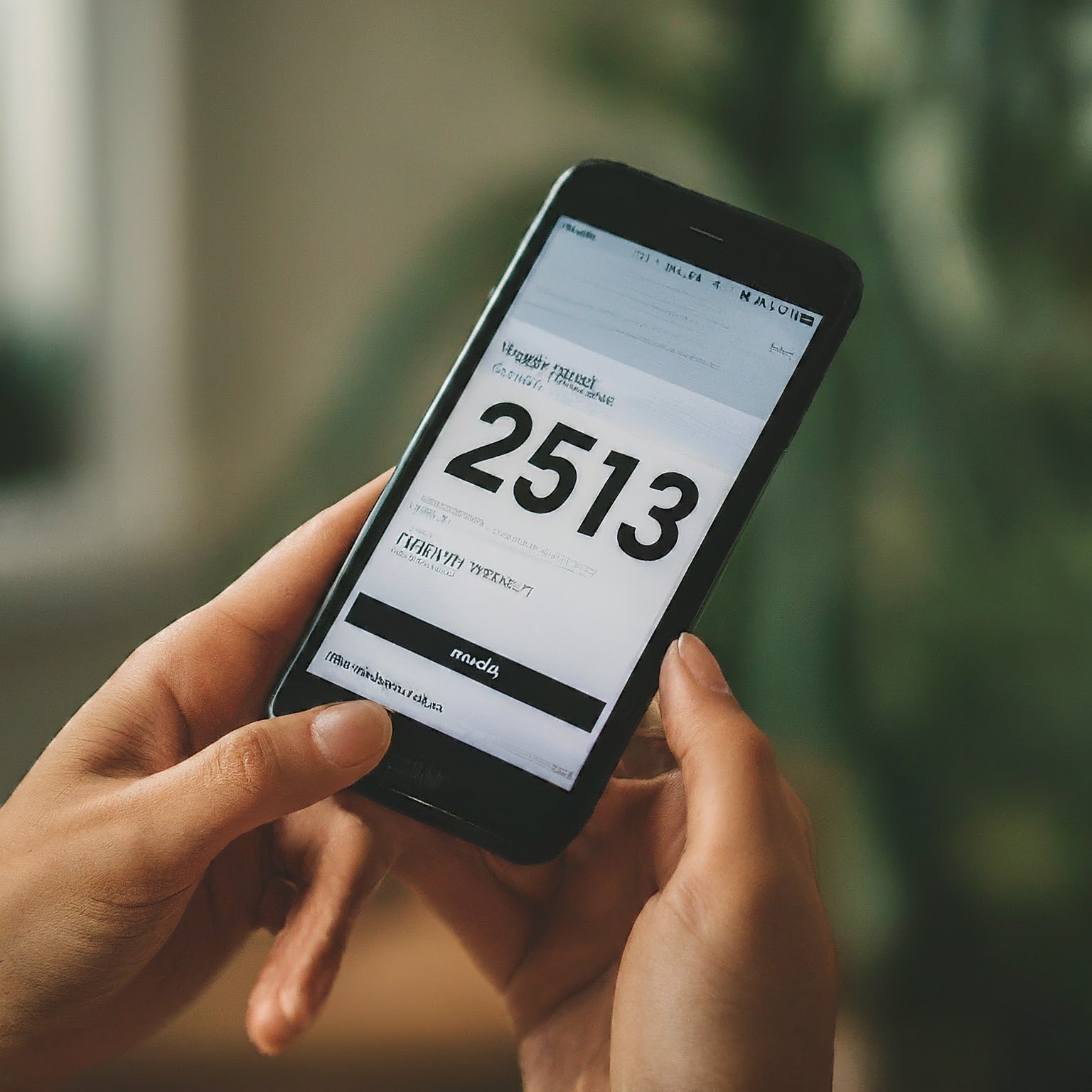If you received a text message from 2513, it is originating from a legitimate SMS short code used for various campaigns and services in the United States. The 2513 short code is primarily associated with T-Mobile promotional and informational campaigns and is also widely used for two-factor authentication (2FA) codes by major tech companies like Google, Microsoft, and Facebook. In some cases, it may also be used by iHeartMedia for radio contests and alerts.
This guide will demystify the message from 2513, clarify who the likely sender is, and provide clear, actionable steps for managing or stopping the texts you receive.

Who is Sending the Message from 2513?
Short codes are 4- to 6-digit numbers used by businesses to send high-volume text messages. They are typically leased, meaning the company using it can change, but the 2513 short code currently has two primary, legitimate users in the U.S.
- T-Mobile Campaigns (Most Common Source)
For customers on the T-Mobile network, the 2513 short code is officially listed by the carrier as one of several numbers designated for T-Mobile campaigns.
- Type of Messages: These can include marketing promotions, special offers, system updates (like a 3G network retirement reminder), or informational alerts about your account or plan.
- Why it Looks Like a Scam: Messages from 2513 are sometimes flagged as suspicious by users due to awkward or unprofessional phrasing. However, if you are a T-Mobile customer and the message contains information related to your service, it is likely legitimate.
- Two-Factor Authentication (2FA) and Security Alerts
A text message from 2513 often contains a one-time passcode (OTP) for account verification. This is common when logging into online services.
- Type of Messages: This is usually a six-digit code that you requested to log into a service like Google, Microsoft, X (Twitter), or Facebook (or an attacker is trying to log in as you).
- Action Required: If you requested the code, enter it quickly. If you received a 2513 code but did not attempt to log in anywhere, it is a critical security warning. An attacker knows your password and is trying to bypass your 2FA. DO NOT share the code, and immediately change your password.
- iHeartMedia and Promotional Alerts
In some instances, the 2513 short code is used by iHeartMedia, one of the largest mass media corporations in the U.S.
- Type of Messages: These alerts are typically promotional, such as contest and giveaway entry confirmations, updates on local concerts, or listener polls from one of their many radio stations (e.g., Z100, KISS FM). These messages are only sent if you actively opted in by texting a keyword to the number.
How to Stop Messages from the 2513 Short Code
The method for stopping messages from 2513 depends on the type of message you are receiving.
Action 1: Opt Out of Marketing/Promotional Messages
If the message is a promotional alert from T-Mobile or iHeartMedia, the easiest and most effective way to opt out is to reply directly to the text.
- Reply to the message with the word STOP.
Short codes are legally required to honor an opt-out request. You should receive a final text confirmation that you have been unsubscribed from that specific campaign. If you receive messages for multiple campaigns using 2513, you may need to repeat this step for each type of message.
Action 2: Report Spam and Block the Number
If you believe the message is a pure scam or the STOP reply fails, you can report it to your carrier’s spam service.
- Forward the entire suspicious text message (including the short code 2513) to the number 7726 (SPAM).
- Your carrier (T-Mobile, Verizon, AT&T) will automatically analyze and log the message to help block future spam texts.
Action 3: Take Immediate Action for Unrequested 2FA Codes
If you receive a text from 2513 with an unexpected verification code, it means someone has your login information.
- DO NOT share the code with anyone.
- Immediately change the password for the account associated with the verification code (e.g., if the code mentions Google, change your Google password).
- For your most critical accounts (banking, email, social media), upgrade your Two-Factor Authentication (2FA) from SMS texts to an Authenticator App (like Google Authenticator or Microsoft Authenticator). App-based codes are far more secure than SMS codes.
Frequently Asked Questions (FAQ)
Is the message from 2513 a scam?
No, the 2513 short code is a legitimate, registered number in the U.S. It is used by major companies like T-Mobile and various tech security services. However, scammers often attempt to exploit the confusion surrounding legitimate short codes by spoofing them or using similar-looking numbers, especially if they are trying to trick you into giving up a legitimate 2FA code that was sent from 2513. Never click a link in an unexpected text and never share a security code.
Can I block the 2513 number on my phone?
Yes. You can block any number, including a short code, directly through your phone’s messaging app settings.
- On Android: Open the message thread from 2513, tap the three-dot menu, and choose “Block number” or “Block contact.”
- On iPhone: Open the message thread, tap the number at the top, select “Info,” and then choose “Block this Caller.”
Why am I receiving the 2513 text if I’m not a T-Mobile customer?
While 2513 is a T-Mobile campaign short code, it is also a shared short code used by other services for 2FA messages. If you are not on T-Mobile, the message is most likely an account verification code for a service you use (like Google, Facebook, or PayPal) or a promotional alert from another company that is leasing the short code at the time.
How do I get more help if I can’t stop the messages?
If replying with STOP doesn’t work, you can try replying with HELP to 2513. This should return an automated message with contact information or a website link for the company running the campaign. If you suspect an issue with your T-Mobile service specifically, contact T-Mobile customer support directly.
Conclusion
The message from 2513 is typically a legitimate communication from T-Mobile, a security service (2FA code), or a promotional partner like iHeartMedia. The texts are rarely a scam in themselves, but they can be part of a hacking attempt if you receive an unrequested security code.
The key takeaway is to treat any unsolicited text from 2513 with caution. Reply STOP to opt out of marketing, and immediately secure your account if you receive an unexpected one-time passcode. Understanding the nature of this short code is the first step in maintaining your mobile security.


